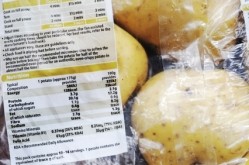Front-of-the-pack labelling is the way to go, say Australian ministers

The decision was taken at a meeting on December 9 between state and the federal government ministers on the findings of the Food Labelling Review carried out by former Australian health minister Dr Neal Blewett in early 2011.
The ministers met under the Federal Government’s Forum on Food Regulation, where they decided that consultations would be made with representatives from health organisations, industry and consumer groups to develop the new system.
“The review panel considered that an effective front-of-pack labelling system can prompt consumers to reconsider their purchase decisions more regularly than the mandated back-of-pack information,” the forum said.
“It may also allow products with healthier attributes to efficiently convey this information to consumers, providing a marketing advantage. In turn, this may drive favourable product reformulation by motivating industry to improve the healthiness of products in the marketplace,” it continued.
The decision is somewhat of a back-pedal from the federal government’s earlier position, as reported by FoodNavigator-Asia, where it rejected front-of-the-pack traffic lights labelling but said that it would further develop back-of-the-pack labelling to give more information on sugar, fat and sugar content in foods.
Traffic light labelling uses green, amber and red lights at the front of the pack to show, at a glance, the relative levels of fat, saturated fat, sugar and sodium in a food product, and has been argued for by Australian health groups.
The food industry however supports the voluntary Daily Intake Guide (DIG) system, which provides numerical and percentage-of-daily-intake values for a range of nutrients contained in a serving size determined by the manufacturer.
Industry comfortable as long as it's not traffic lights
The forum, while not disclosing what front-of-pack labelling be like, said the new system would have to be as easy as traffic lights, but also more informative and descriptive like the DIG system.
Companies would be given two years to implement the labelling changes across their products once the standards of design and content for the new labelling system are fixed, the forum said.
Kate Carnell, chief executive of the Australian Food and Grocery Council (AFGC), said that industry welcomed the decision of the forum to support the federal government’s position on rejecting traffic light labels.
Carnell said: “Australia’s food and grocery manufacturing industry is happy to work with the Forum on Food Regulation to look at global evidence on developing a preferred approach to a single, front-of-pack food labelling system.”
Nutrition policy, alcohol label warnings other key recommendations
Ministers also agreed to the development of a comprehensive National Nutrition Policy and the development of food standards by Food Standards Australia New Zealand (FSANZ) that will support public health objectives.
Also given the green light was the recommendation that all alcohol products in the country carrying mandatory pregnancy warnings within the next two years; a decision that was okayed by the federal government previously.
Regarding health claims on food products, the ministers again supported the federal government, and asked FSANZ to undertake broad consultation on the draft standard before a final standard is presented to Ministers.
FoodNavigator-Asia had reported that the federal government wanted to formulate new rules that would allow deeper scrutinisation of the use of nutritional and health claims such as “low fat” and “high fibre” on food products.











